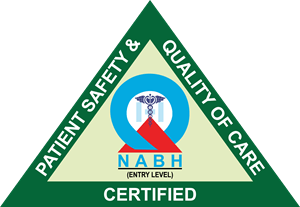Neck Pain
What Is Neck Pain ?
Neck pain refers to discomfort in the cervical region of the spine. It can result from muscle strain, poor posture, injuries, or underlying conditions like herniated discs or cervical spondylosis. Stress, repetitive movements, and poor ergonomics can contribute. Treatment may involve pain management, physical therapy, exercises, and lifestyle changes. Medical evaluation is important to identify the cause and develop an appropriate plan to alleviate pain and improve neck mobility and function.Lower back pain may be linked to the bony lumbar spine, discs between the vertebrae, ligaments around the spine and discs, spinal cord and nerves, lower back muscles, abdominal and pelvic internal organs, and the skin around the lumbar area. Pain in the upper back may be due to disorders of the aorta, tumors in the chest, and spine inflammation.

What Is The Main Cause Of Neck Pain ?
Neck pain can stem from various causes, including muscle strain due to poor posture or overuse. Structural issues like herniated discs, cervical spine degeneration (spondylosis), or spinal misalignments can lead to chronic discomfort. Injuries such as whiplash from accidents or strains from lifting heavy objects incorrectly can trigger acute pain. Underlying medical conditions like osteoarthritis, spinal stenosis, or nerve impingements might contribute. Stress and tension can also manifest as neck pain. Identifying the specific cause through medical assessment is crucial for devising an effective treatment plan that addresses the underlying issue, and lifestyle adjustments and physical therapy often play pivotal roles.
What Is Treatment ?
Neck pain treatment depends on the underlying cause and severity. For muscle-related pain, rest, gentle stretches, and over-the-counter pain relievers can help. Physical therapy focuses on improving posture, strengthening muscles, and increasing flexibility. Heat or cold therapy and massage might provide relief. Structural issues may require medications, injections, or, in severe cases, surgery. Lifestyle changes such as ergonomic adjustments and stress reduction techniques aid prevention. Neck braces or collars might be recommended for support. A comprehensive approach involving medical professionals, physical therapists, and pain specialists ensures a tailored treatment plan to alleviate neck pain, enhance function, and prevent recurrence.
Clinical Services
Facilities
24 Hours Services



